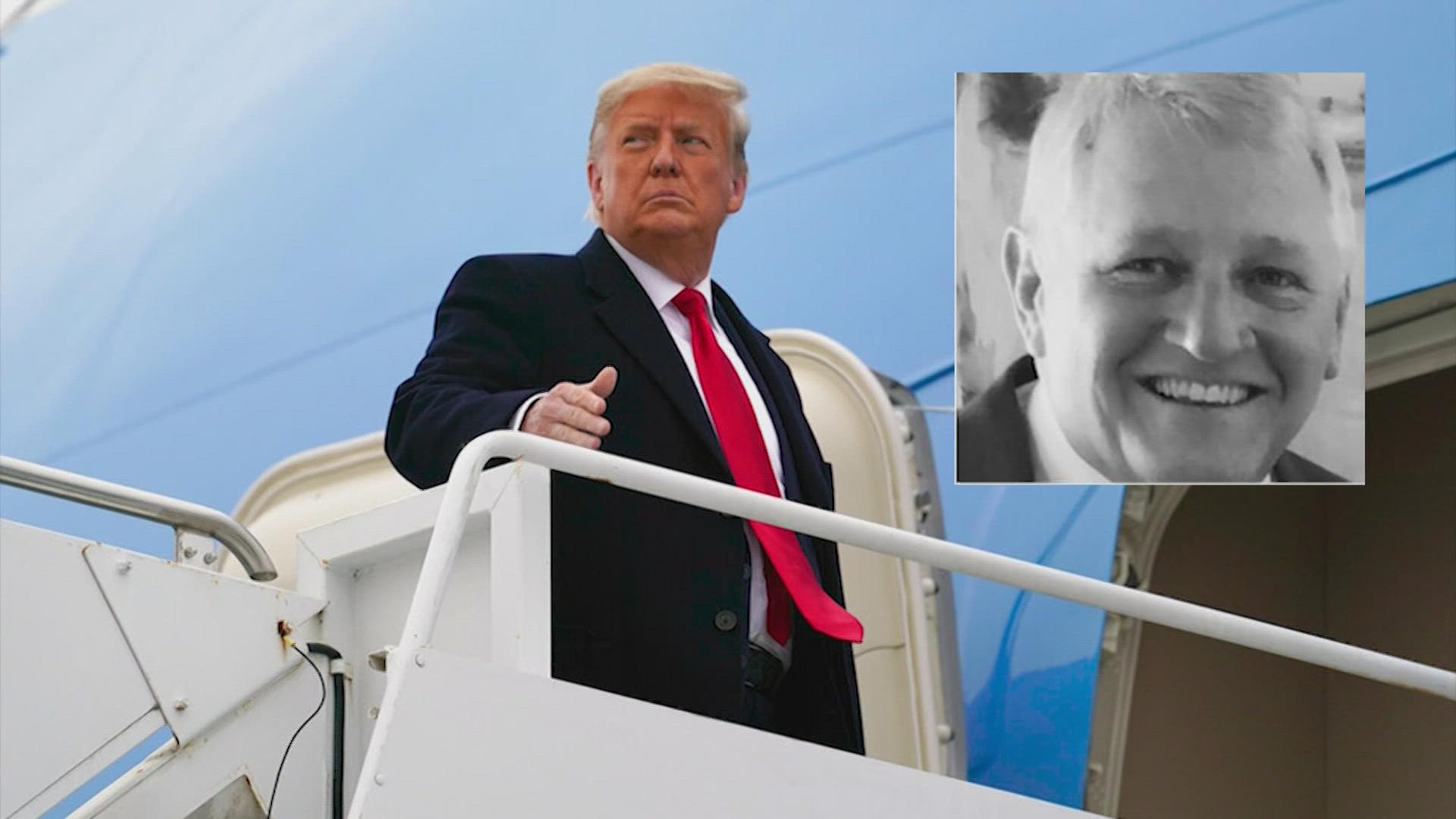AUSTIN, Texas — Gov. Greg Abbott on Thursday appointed John Scott — a Fort Worth attorney who briefly represented former President Donald Trump in a lawsuit challenging the 2020 election results in Pennsylvania — as Texas' new secretary of state.
As secretary of state, Scott would oversee election administration in Texas — a task complicated in recent years by baseless claims of election fraud from Republicans in the highest levels of government, fueled by Trump. The former president has filed a flurry of lawsuits nationwide and called for audits in Texas and elsewhere to review the results of the 2020 presidential elections. Trump’s own attorney general, Bill Barr, said there was no evidence of widespread voter fraud nationwide, and in Texas, an official with the secretary of state’s office said the 2020 election was “smooth and secure.”
On Nov. 13, Scott signed on as counsel to a lawsuit filed by Trump attempting to block the certification of Pennsylvania's election. A few days later, Scott filed a motion to withdraw as an attorney for the plaintiffs. Scott's motion also asked to withdraw Bryan Hughes, a Texas state senator from Mineola who works for Scott's law firm, as an attorney for the case.
Scott graduated from South Texas College of Law in Houston in 1988.
Scott has 33 years of legal experience, arguing more than 100 legal cases in state and federal courts, including the U.S. Supreme Court. Working at the attorney general's office under Abbott, Scott was deputy attorney general for civil litigation, overseeing more than 22,000 lawsuits for the state. He later was appointed chief operating officer of the state's Health and Human Services Commission, where he was in charge of 56,000 employees and a biennial budget of $50 billion.
“Scott has a long history with Governor Abbott,” KHOU 11 legal analyst Bob Stein said. “He worked in the governor’s office for a number of years. He’s got more than quarter of a century of experience in election law, and this may be one of the more qualified people [Governor Abbot has] appointed.”
But it’s Scott’s brief work with former President Donald Trump’s campaign that is getting the most attention right now.
Republican strategist Vlad Davidiuk says Scott’s work for the Trump Campaign shouldn’t lead to questions of his judgement.
“That actually shows how concerned and how dedicated he is that Texans can have security in the outcomes of our elections,” Davidiuk said. “He’s very familiar with election law, upholding election integrity so that Texans can have confidence in both the integrity, security and outcome of their elections.”
Stein says the true test of Scott’s legal judgement lies ahead.
“The important point here is whether or not he will be able to implement the election laws that were implemented by the state legislature," Stein said. "These laws that were just passed under Senate Bill 1 and House Bill 3 have a lot of problems that require interpretations and possibly, litigation.”
Scott could not immediately be reached for comment.
The top elections position has been open since the end of May, when former Secretary of State Ruth Hughes resigned. Scott will eventually have to be confirmed by the Legislature, which ended a nine-month slog of lawmaking just 10 days ago. The Legislature is not scheduled to meet again until 2023. Until then, Scott serve as interim secretary of state, and oversee next year's statewide races, in which Abbott will run for reelection.
Abbott's announcement of Scott's appointment did not mention Scott's work for Trump — even as Abbott has endured mounting pressure from Trump supporters to call for audit elections.
"John Scott is a proven leader with a passion for public service, and his decades of experience in election law and litigation make him the ideal choice for the Texas Secretary of State," Abbott said in a statement. "John understands the importance of protecting the integrity of our elections and building the Texas brand on an international stage. I am confident that John's experience and expertise will enhance his oversight and leadership over the biggest and most thorough election audit in the country."
Scott is no stranger to election law. When Abbott was attorney general, Scott worked under him as a deputy attorney general in 2014, where he defended the state's voter identification law. Federal courts found the law to have discriminatory effect. Eventually, lawmakers had to rewrite the law to address concerns from the 5th U.S. Circuit Court of Appeals.
Scott will also be the state's liaison to Mexico, the state's biggest trading partner, and will advise Abbott on border and trade affairs.
There's been a revolving door of secretary of state appointments under Abbott in recent years.
Abbott's last two appointments for the top elections position, Hughs and David Whitley, were not confirmed by the Senate. Hughs resigned in May after the Senate refused to consider her confirmation.
Whitley resigned at the end of the 2019 legislative session after overseeing a botched effort to scour the voter rolls for supposed noncitizen voters. Thousands of naturalized citizens had their right to vote threatened in that effort, which landed in federal courts and prompted a congressional investigation. The state agreed to end that review and paid $450,000 to plaintiffs for attorney's fees in the lawsuits.
Scott also has served as board chair for the Department of Information Resources. He has law offices in Fort Worth and Austin.
Disclosure: The Texas secretary of state has been a financial supporter of The Texas Tribune, a nonprofit, nonpartisan news organization that is funded in part by donations from members, foundations and corporate sponsors. Financial supporters play no role in the Tribune's journalism. Find a complete list of them here.

